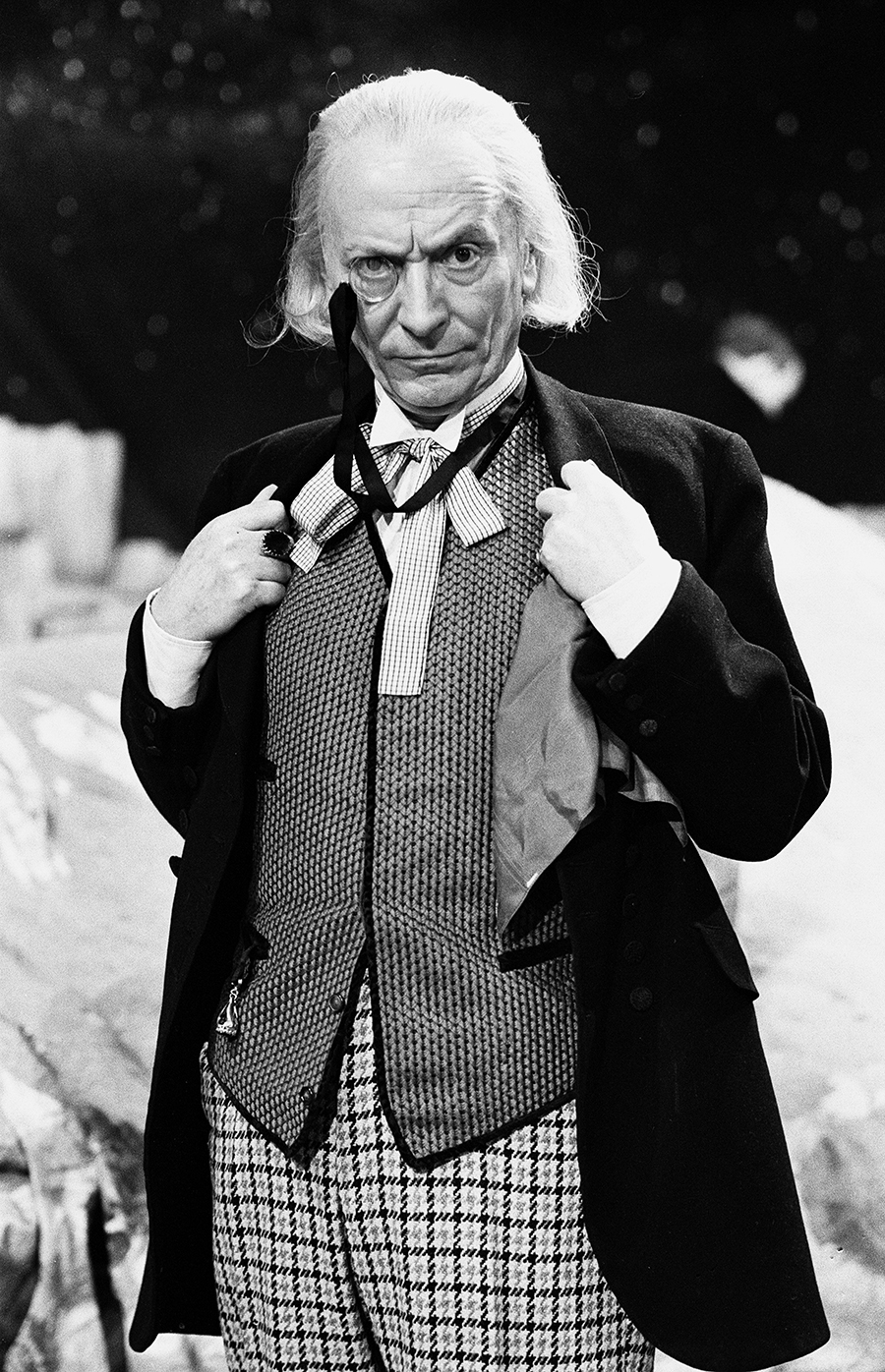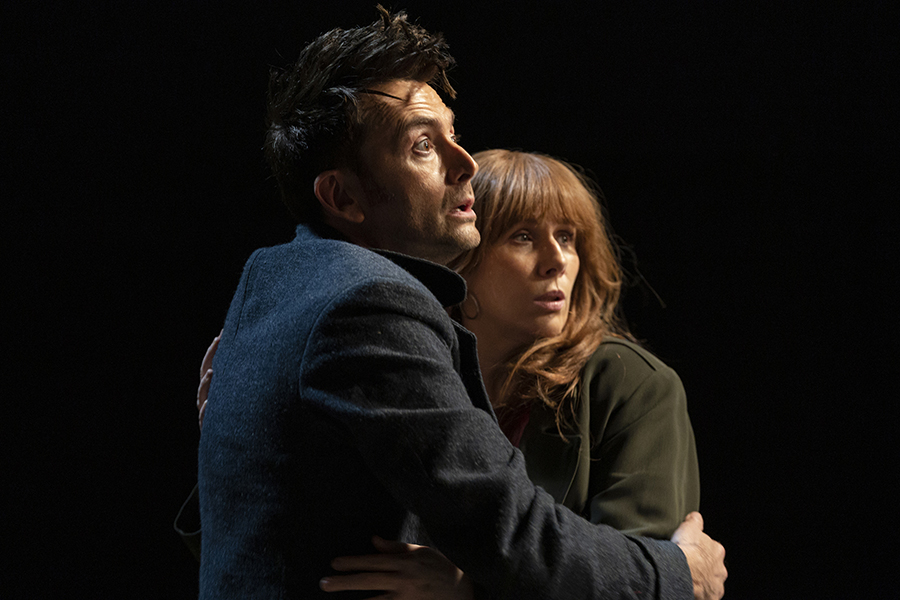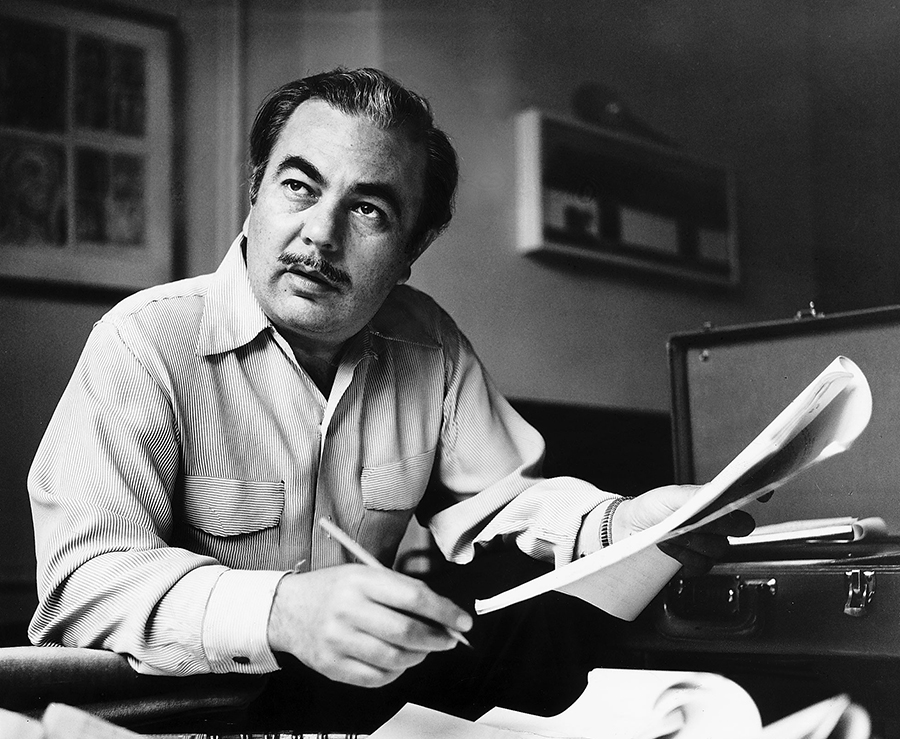‘Doctor Who’ Turns 60: Celebrating the Legendary British Series and Its Canadian Connection

David Tennant, as The Doctor, returns in the 60th anniversary release of 'Doctor Who' on Disney+. Photo: Disney+
On November 22, 1963, the longest-running science fiction television series in history began.
No, not Star Trek. That NBC series didn’t boldly go on the air until 1966. As “Whovians” the world over know, the show in question is Doctor Who.
Launched in the U.K. on the BBC, the series originally starred English actor William Hartnell as an alien from the planet Gallifrey and the last of the powerful Time Lords. Appearing in human form, Doctor Who travels through time in a TARDIS, a time machine/spacecraft hybrid which looks like an ordinary blue police box – a fairly common sight back in Britain in the ’60s.
The series has spanned nearly 800 episodes and has spawned numerous spin-offs, feature films and graphic novels. It is as iconic a part of British culture as Big Ben and The Beatles.

But why has the good Doctor spent 60 years hopping back-and-forth in time, generally joined by various companions? Basically, to save civilization from different foes – some from other worlds – who pose a threat to humanity. Ironically, the series began on a day when the assassination of U.S. President John F. Kennedy made it feel as if the world had become a much darker place.
Hartnell, who once mused that he should have stuck with the part longer, was the first of thirteen actors who have headlined the series – and the oldest, being 55 at the start of the show’s run. The producers, meanwhile, devised a clever way for explaining all the different leading men (and, so far, one woman). There is a whole concept of regeneration which occurs every time the Time Lord is too badly harmed to heal normally. When the transformation occurs, a new actor steps out of the TARDIS and another adventure begins.
A favourite when this writer was a lad was Tom Baker, all curls and scarves, who played the fourth Doctor, from 1974 to 1981. Christopher Eccleston (The Leftovers), who played the ninth Doctor, only did it for one series in 2005. Matt Smith, who starred as Prince Philip in the first two seasons of The Crown, played the 11th Doctor (2010 – 2013) and was, at 26, the youngest to assume the role.
Casting more diverse actors has been the rule in recent years. Jodi Whittaker, who played the 13th Doctor (2017 – 2022), became the first woman ever to star in the series. And the upcoming star, Rwandan-Scottish actor Ncuti Gatwa, will become the first person of colour and the first born outside the U.K. to assume the role. He will debut in the annual “festive period” Doctor Who special at the end of this year.
Stepping in between to help celebrate the 60th anniversary is fan favourite David Tennant. The 52-year-old Scottish actor kick-started the series when he previously played the 10th Doctor, from 2005 to 2010, bringing a lightness to a role which has always had a dark side.

He will be joined once again by British actress-comedienne Catherine Tate, 53, who previously played the Doctor’s platonic and heroic friend Donna Noble. The two made such an impact together that fans started referring to them – as the show’s Ood aliens did – as “Doctor-Donna.”
Tennant’s return as the 14th — or what’s being called “the Bridge Doctor” — marks the first time an actor has “regenerated” twice. He and Tate return for three specials before handing off to No. 15, Gatwa.
These three new 60th anniversary specials, streaming on Disney+, were helmed by Welsh screenwriter and producer Russell T Davies, 60. He first re-energized the series back in 2005-2010 when Tennant took his initial star turn as the Time Lord.
The first special, titled The Star Beast, premieres November 25 and will introduce Neil Patrick Harris, 50, as the Celestial Toymaker — a villainous character who harkens back to 1966. Harris brings plenty of panache to his role, while returning cast members include Jacqueline King, Karl Collins, Bernard Cribbins and Jemma Redgrave. The second and third specials will air Dec. 2 and Dec. 9 in Canada on Disney+.
The Doctor Who Canadian Connection
While the series is as British as bangers and mash, Doctor Who actually owes its existence to a Canadian. Born in Toronto in 1917, Sydney Newman was a 20-something member of an award-winning documentary team formed in 1939 at the National Film Board of Canada.
After the Second World War, Newman studied the new medium of television at NBC in New York and took those lessons with him to the fledgling Canadian Broadcasting Corporation. As head of CBC drama in the ‘50s, he was there during a golden era when Canadians such as Norman Jewison, Ted Kotcheff, Christopher Plummer and a future TV sci-fi star named William Shatner, were cutting their teeth.
In 1958, Newman was poached by the Associated British Corporation (ABC) to do for British TV drama what he had accomplished in Canada. The Avengers, a cheeky spy drama starring Patrick Macnee, was one of his first hits.
He next moved on to a similar role at the BBC. A sci-fi enthusiast, he decided to throw himself into developing a futuristic series for kids. A team was assembled, and Newman is generally credited with both coming up with the title as well as the basic time-jumping premise of Doctor Who.

Newman handed off the project to an assistant, Verity Lambert. Then just 27, Lambert was the only female producer at the BBC. The show’s director, Waris Hussein, was the first Indian director at the public broadcaster.
Underfunded and shot in a dump of a studio, the original pilot was such a dud that Newman surely longed for his own time machine. Instead, he told his young production team to shoot it again. (Curiously, it also took two pilots to launch Star Trek).
The challenge of shooting the original series is captured in the 2013 TV-movie An Adventure in Space and Time. Made by the BBC 10 years ago to celebrate the 50th anniversary of the series, the movie starred David Bradley — no stranger to fandom from appearing in both Harry Potter and Game of Thrones — as original Doctor, Hartnell. An Adventure in Space and Time also starred a pre-Succession Brian Cox as Who’s real hero, the Canadian-born Newman.
Bradley told a Television Critics Association gathering of reporters in 2013 that Doctor Who came very close to being lost in space. According to Bradley, Hartnell didn’t think much of his young director and producer. Worse, the BBC was losing patience with Newman’s sci-fi project. Passionate producer Lambert fought hard for Doctor Who, but Bradley credits the Canadian for saving the series.
“Fortunately for her [Lambert], she had the backing of Sydney Newman,” said Bradley. “If she had had a different head of drama, he might have said, ‘Forget it. It was a bad idea. Drop it.’”
The second pilot was better, but even after it aired, Doctor Who still hadn’t quite landed. The night it premiered, news of the Kennedy assassination understandably wiped it off the front pages. Only in later episodes did it get any traction. That was thanks to the show’s odd enemy robots (known as the Daleks) with their creepy voices and toilet-plunger arms. They scared every kid in Britain, which led to a surge in ratings.
With the show’s 60th anniversary, the natural question is how long can Doctor Who go on? The series, after all, has time-travelled from the black and white television era to today’s age of watching video clips on iPhone screens.
Still, despite the generational changes, the all-important fandom remains. And as long as there are new actors who can step into the role, don’t bet against the good Doctor celebrating 100 years in 2063.
RELATED:
How Encrypted Victorian Newspaper Personal Ads Shaped Fiction Like Sherlock and Enola Holmes
Star Trek Day: 15 Out-of-This-World Facts About the Show on Its 56th Anniversary
Olivia Colman on The Crown, Acting Opposite Anthony Hopkins in The Father and Finding Fame in Her Mid-40s